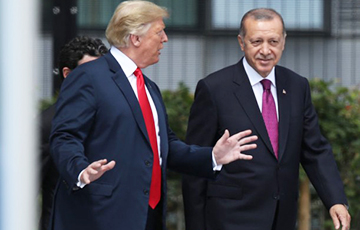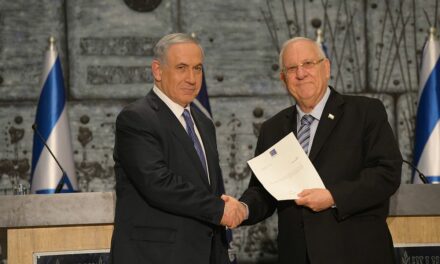Via – MSN
President Trump’s acquiescence to Turkey’s move to send troops deep inside Syrian territory has in only one week’s time turned into a bloody carnage, forced the abandonment of a successful five-year-long American project to keep the peace on a volatile border, and given an unanticipated victory to four American adversaries: Russia, Iran, the Syrian government and the Islamic State.
Rarely has a presidential decision resulted so immediately in what his own party leaders have described as disastrous consequences for American allies and interests. How this decision happened — springing from an “off-script moment” with President Recep Tayyip Erdogan of Turkey, in the words of a senior American diplomat — likely will be debated for years by historians, Middle East experts and conspiracy theorists.
But this much already is clear: Mr. Trump ignored months of warnings from his advisers about what calamities likely would ensue if he followed his instincts to pull back from Syria and abandon America’s longtime allies, the Kurds. He had no Plan B, other than to leave. The only surprise is how swiftly it all collapsed around the president and his depleted, inexperienced foreign policy team.
Day after day, they have been caught off-guard, offering up differing explanations of what Mr. Trump said to Mr. Erdogan, how the United States and its allies might respond, and even whether Turkey remains an American ally. For a while Mr. Trump said he acted because the Islamic State was already defeated, and because he was committed to terminating “endless wars” by pulling American troops out of the Middle East. By the end of the week he added 2,000 — to Saudi Arabia.
One day he was inviting Mr. Erdogan to visit the White House; the next he was threatening to “totally destroy and obliterate” Turkey’s economy if it crossed a line that he never defined.
Mr. Erdogan just kept going.
Mr. Trump’s error, some aides concede in off-the-record conversations, was entering the Oct. 6 call underprepared, and then failing to spell out for Mr. Erdogan the potential consequences — from economic sanctions to a dimunition of Turkey’s alliance with the United States and its standing in NATO. He has since threatened both, retroactively. But it is not clear Mr. Erdogan believes either is a real risk.
The drama is nowhere near over. Out of necessity, the Kurds switched sides on Sunday, turning their backs on Washington and signing up with President Bashar al-Assad of Syria, a man the United States has called a war criminal for gassing his own people. At the Pentagon, officials struggled with the right response if Turkish forces — NATO allies — again opened fire on any of the 1,000 or so Americans now preparing to retreat from their positions inside Syria. Those troops are trapped for now, since Turkey has cut off the roads; removing them may require an airlift.
And over the weekend, State and Energy Department officials were quietly reviewing plans for evacuating roughly 50 tactical nuclear weapons that the United States had long stored, under American control, at Incirlik Air Base in Turkey, about 250 miles from the Syrian border, according to two American officials.
Those weapons, one senior official said, were now essentially Erdogan’s hostages. To fly them out of Incirlik would be to mark the de facto end of the Turkish-American alliance. To keep them there, though, is to perpetuate a nuclear vulnerability that should have been eliminated years ago.
“I think this is a first — a country with U.S. nuclear weapons stationed in it literally firing artillery at US forces,” Jeffrey Lewis of the James Martin Center for Nonproliferation Studies wrote last week.
Read MORE HERE






Recent Comments